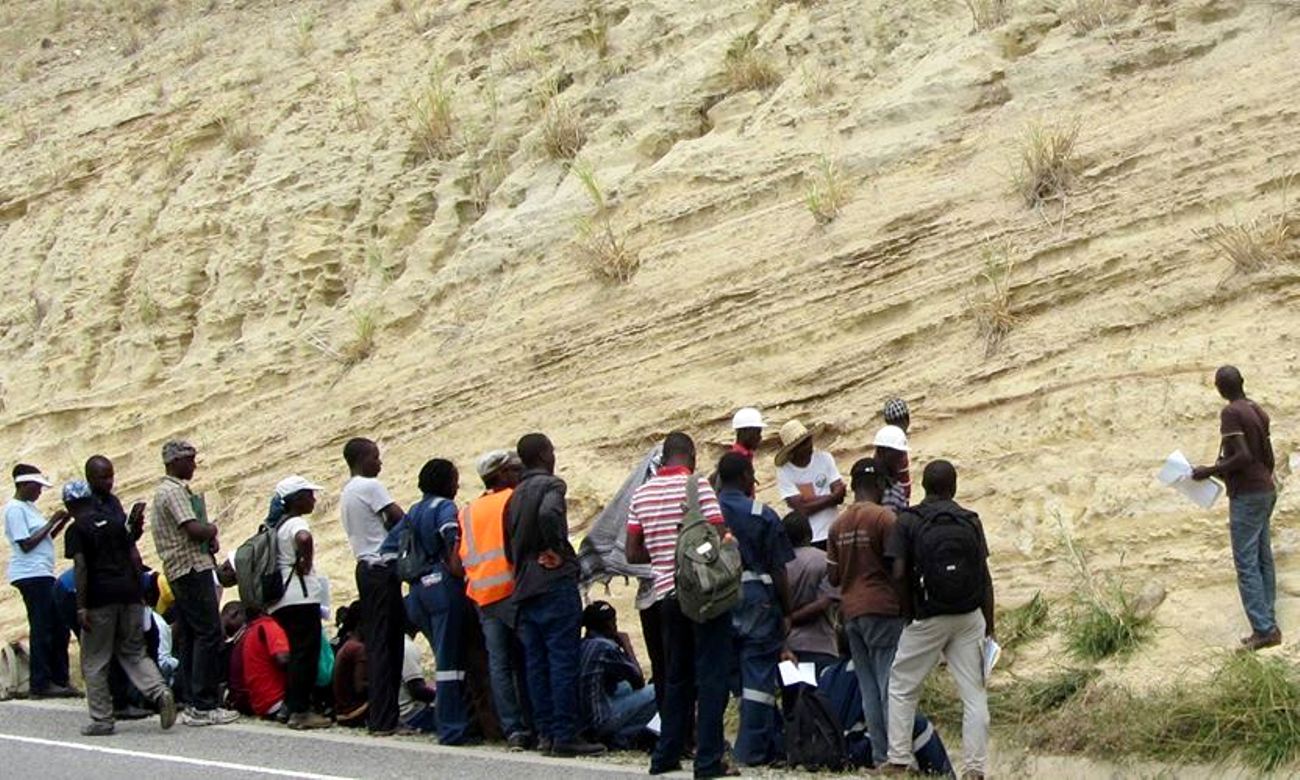
Call for Applications for Masters and PhD Scholarships Tenable at Makerere University (MAK), Kyambogo University (KYU) and Jaramogi Oginga Odinga University of Science and Technology (JOOUST) in collaboration with University of Natural Resources and Life Sciences, Vienna (BOKU) under The APPEAR Academic Partnership Project ‘Environmental Chemistry for Sustainable Development (ECSDevelop)’
Project background
East Africa faces serious environmental challenges in relation to atmospheric, soil and water pollution. The Lake Victoria basin and the Albertine Graben have not been spared either. The Lake basin, which is being shared by Uganda, Tanzania and Kenya has been undergoing rapid urbanization in the last three decades; the high population density, rapid industrial growth and waste-water treatment plants in vicinity of Lake Victoria basin have been reported as sources of environmental contaminants such as plastic debris and endocrine disrupting chemicals (EDCs). It is expected that both Lake Victoria and Nile River act as sinks for pollutants e.g., microplastics (MPs); however, the extent of these interactions and MPs entrapment rates will be governed by many physical, biological and chemical factors. In addition, the project explores L. Victoria point source pollution identification and remediation. Since most of the pollutants on the Kenyan side of lake have been identified, stratified sampling of known pollutants will be done and mechanisms of removing the pollutants at its source determined. A policy brief will be prepared and made available to concerned authorities for action.
Furthermore, Uganda has established an ambitious agenda for its future with its 2040 Vision acting as a blueprint and framework envisaging a middle-income economy, and its hopes for infrastructural and social development are hinged on revenues expected from oil production in the Albertine Graben. In 2013, Uganda’s oil reserves were estimated to be 3.5 billion barrels, and were expected to yield at least USD $2 billion per year for 30 years once oil production commences. The Albertine Graben, covering an exploration area of about 25,000 km2 contains substantial oil seepages that lead to environmental degradation and thus impose threats to people’s health through food chains. Many bioremediation and chemical oxidation studies have been carried out but with limited remediation efficiency. In this project, candidates will explore multifaceted application of nanotechnology in the field of bioremediation of petroleum hydrocarbons. Understanding the interaction between the contaminant, the microorganism, and the nanomaterials is of crucial importance since positive and negative effects may be produced.
Project Objectives/Outcomes:
It is expected that through this project, we shall;
- Exploit regional capacities to jointly streamline existing curricula on environmental chemistry and ecotoxicology.
- Develop a novel cost-effective state-of-the-art technology to track and clean up contaminants in waste water.
- Develop efficient remediation technologies for crude oil contaminated soils and water of the Albertine graben, Uganda.
- Investigate seasonal fluxes, sources and trophic transfer of microplastics within the aquatic ecosystem of Lake Victoria and River Nile.
Scholarship design:
The project offers financial support to academically skilled master’s and PhD students with main focus on aforementioned priority areas. 4 PhD scholarships (2 tenable at MAK -Uganda, 1 tenable at KYU-Uganda, and 1 tenable at JOOUST-Kenya), and up to 5 Master scholarships (3 tenable at MAK, 1 tenable at KYU, and 1 tenable at JOOUST) will be considered for funding by ECSDevelop project. 50% of the scholarships will be awarded to females.
The scholarship covers:
- Full tuition fees: Payable directly to the University according to an official invoice;
- Stipend: EUR 2,400 and EUR 3,600 for MSc and PhD students, respectively, per year to support living expenses during project duration;
- Field visits, study materials and laboratory consumables: One-off allowance;
- Workshops on renewable resources/analytical skills and webinar series on biorefinery;
- Research fellowships in BOKU, Austria: Students will be provided with money to cover their costs for accommodation, insurance and upkeep while in Austria at the University of Natural Resources and Life Sciences, Vienna (BOKU).
Interested applicants should submit the following sets of documents:
- An application letter for a Master’s or PhD scholarships;
- A current CV (at most 2 pages), including a detailed description of the previous education at the University level (all courses and grades) and a description of current research interests in line with the stated ECSDevelop project areas of focus;
- Citizenship Proof – Copy of national identity card or passport;
- Three recent passport size photos;
- A certified copy of the bachelor’s degree & certificate for Master’s applicants; Master’s degree & certificate for PhD applicants;
- A copy of admission letter to the MSc. Program at MAK or KYU or JOOUST for Master’s applicants;
- A research Concept Note maximum 5 pages with a detailed description of the applicant’s research interest.
- A motivation letter showing why they are interested in pursuing Masters or PhD studies and expected outputs from their master’s or PhD studies.
- At least two recommendation letters from your academic referees. The reference letters should be sent together with the application.
Application procedure:
- All application documents must be zipped up in one file folder;
- Electronic submission of application for scholarship with supporting documents should be sent to the Overall Project Coordinator of ECSDevelop, Dr. Christine Betty Nagawa on e-mail christine.nagawa[at]mak.ac.ug with a copy to ECSDevelop Project Coordinator at JOOUST, Dr. Solomon Omwoma Lugasi on e-mail slugasi[at]jooust.ac.ke; and to the ECSDevelop project Coordinator KYU, Dr. Christine Kyarimpa on email ckyarimpa[at]kyu.ac.ug
- No hard copies of application documents will be required given the prevailing covid-19 situation;
- Deadline for submission of applications is 30th January, 2022 17:00 hours, EAT. Only the shortlisted candidates will be contacted for interviews.
Selection Process:
These are competitive Masters & PhD scholarships. The applications shall be vetted by a selection panel consisting of professionals from MAK, KYU, JOOUST and BOKU. Previous working experiences with research projects will be an added advantage.
Please see Download below for detailed Call for Applications.
Mak-KYU-JOOUST-MSc_and_PhD_Scholarships_Advert_ECSDevelopDownload